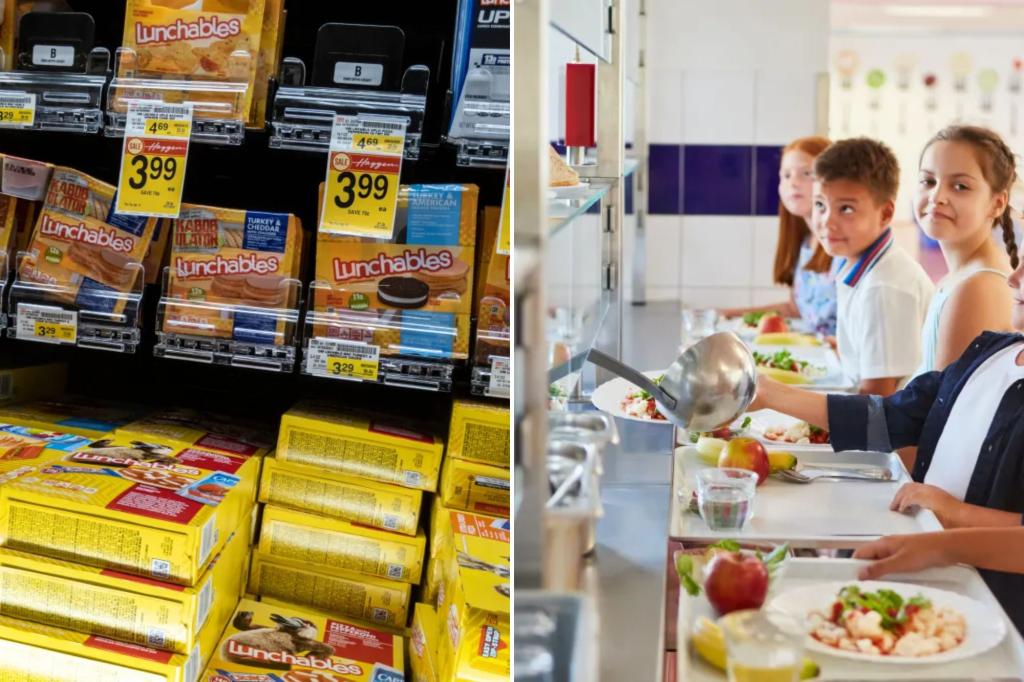Consumer Reports is advocating for the banning of Lunchables from school lunchrooms due to concerns over the high sodium content in the meal kits. The organization believes that Lunchables are not a healthy option for children and should be removed from the National School Lunch Program. They argue that the sodium levels in Lunchables and similar lunch kits can lead to serious health problems over time and that children in schools should have access to healthier options.
Upon testing, Consumer Reports found that the specially formulated versions of Lunchables made for the National School Lunch Program by Kraft Heinz contained higher amounts of sodium than the grocery store versions. For example, a Lunchables pizza kit with 510 mg of sodium in the supermarket had 700 mg in the school lunch version. This increase in sodium levels poses a risk to children’s health, as children aged 4-8 should limit their sodium intake to about 1,500 mg daily to prevent high blood pressure and hypertension.
Kraft Heinz stated that the specially formulated Lunchables kits for schools incorporated more protein and whole grains to provide sustained energy throughout the day, as well as reduced saturated fat and sodium, and an increased serving size. However, Consumer Reports raised concerns over the sodium levels in these lunch kits and the presence of toxic metals and everyday chemicals in store-brand kits, including Lunchables, Oscar Mayer, and other brands. While the levels of lead and cadmium found in these kits were below federal limits, the organization expressed worry over the potential health effects of these additives.
The decision to introduce Kraft Heinz’s Lunchables into the National School Lunch Program appears to contradict the USDA’s proposed changes to nutrition guidelines, which aim to decrease added sugars and sodium levels in school lunches over a period of several years. Despite the efforts to create healthier versions of Lunchables for schools, Consumer Reports believes that the sodium levels in these meal kits are still too high and pose a risk to children’s health, especially in the long term.
Consumer Reports emphasized that there is no safe level of lead for children, according to the US Centers for Disease Control and Prevention. Cadmium, another toxic metal found in certain ultraprocessed foods, has been linked to kidney disease, cancer, and other ailments. The presence of lead and cadmium in store-brand kits like Lunchables raises concerns about the impact of these toxic substances on children’s health, even if they are within federal limits.
Overall, Consumer Reports is pushing for the removal of Lunchables from school lunchrooms due to the high sodium content and potential health risks associated with these meal kits. The organization believes that children should have access to healthier options in schools and that there are concerns over the presence of toxic metals and everyday chemicals in these ultraprocessed foods. While Kraft Heinz has worked to formulate healthier versions of Lunchables for the National School Lunch Program, Consumer Reports maintains that the sodium levels in these meal kits are still too high and may lead to serious health problems over time.


